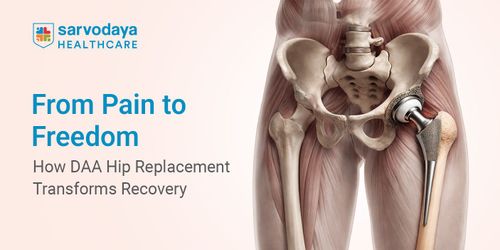As the temperature drops and we wrap ourselves in warm clothes, we often forget that the winter season also affects the organs we cannot see – especially our kidneys. Cold weather can subtly affect their performance, increasing the risk of dehydration, high blood pressure, and even kidney stones.
In this blog, we share practical kidney care tips for the winter season that will help you keep your kidneys healthy and active.
Understanding Kidney Health in the Winter Season
Kidneys are delicate organs that silently manage crucial functions, from filtering toxins to maintaining the body’s electrolyte balance. During the winter season, the body’s need for water decreases, and we often tend to drink less. This reduced hydration can affect kidney function, leading to more concentrated urine and an increased risk of infections or kidney stones.
The body constricts blood vessels to maintain warmth, which increases blood pressure and strains the kidneys. People with diabetes, hypertension, or previous kidney issues are especially at risk of experiencing complications during this time.
Common Kidney Problems During Winter
During winter, several kidney-related issues tend to become more noticeable due to lifestyle changes, reduced water intake, and the body’s response to cold temperatures.
Here are some of the most frequent kidney problems cold weather can cause:
- Dehydration: In winter, people tend to feel less thirsty and drink less water. This leads to concentrated urine, which increases the risk of infection. Therefore, preventing kidney stones in winter becomes even more critical.
- Kidney Stones: Reduced water intake and a sedentary lifestyle can contribute to the formation of kidney stones. Staying hydrated and following a proper winter diet can help maintain kidney health.
- Urinary Tract Infections (UTIs): Cold weather can cause delayed urination, which promotes bacterial growth in the urinary tract.
- High Blood Pressure: Cold-induced constriction of blood vessels can raise blood pressure, which, over time, may affect kidney function.
- Swelling or Fluid Retention: The body’s circulation can slow down during the cold weather, sometimes causing puffiness or swelling, particularly in individuals with weakened kidney function.
Being aware of these issues ensures that you can take timely action, maintain hydration, and seek advice from the best nephrologist in Faridabad when symptoms persist.
Read More- Kidney Stones - Types, Diagnosis, Treatment & Prevention
Kidney Care Tips for the Winter Season
With a few consistent habits and mindful lifestyle adjustments, you can naturally support your kidney health.
Below are practical winter kidney care home remedies and healthy practices to follow:
- Drink Enough Fluids: Even if you don’t feel thirsty, aim to drink 6–8 glasses of water daily. Warm or lukewarm water is best for staying hydrated.
- Avoid Excessive Salt Intake: Consuming too much salt can increase blood pressure and put a strain on the kidneys. Choose low-sodium foods wherever possible.
- Eat Kidney-Friendly Foods: Include fruits like apples, oranges, and berries, as well as vegetables such as spinach, carrots, and beets in your winter diet for kidney health.
- Stay Physically Active: Simple exercises such as walking or stretching can help maintain blood flow and reduce kidney strain.
- Avoid Painkillers Unless Prescribed: Overuse of pain medication can damage the kidneys over time.
- Keep Your Body Warm: Protect your lower back area from cold to prevent kidney discomfort.
- Get Regular Check-Ups: Individuals with chronic conditions should have their kidney function tested regularly by the best nephrologist in Delhi NCR for timely prevention.
Winter Diet for Kidney Health
The right foods can enhance kidney function, reduce toxin buildup, and support overall well-being.
Here are a few essential tips to follow when planning a winter diet for kidney health:
- Include Seasonal Fruits and Vegetables: Fresh produce, such as carrots, beets, spinach, cauliflower, and cabbage, helps maintain a good electrolyte balance. Fruits like apples, oranges, and berries are rich in antioxidants and beneficial for kidney health.
- Stay Hydrated with Warm Fluids: Soups, broths, and herbal teas can be excellent substitutes for plain water to keep you hydrated and warm.
- Add Detoxifying Drinks: Herbal teas made from coriander, ginger, or tulsi can aid in gentle detoxification and improve kidney function.
- Consume Protein Wisely: Opt for moderate amounts of plant-based protein such as lentils, beans, and tofu instead of heavy red meat, which can strain the kidneys.
- Limit Processed and Saltier Foods: Consuming too much sodium can lead to fluid retention and elevated blood pressure, placing additional stress on the kidneys.
Read More - Get Rid Of Kidney Stones With Scarless Laser Treatment
Preventing Kidney Stones During Winter
Kidney stones tend to increase in frequency during the colder seasons. The drop in temperature often reduces fluid intake and physical movement, allowing minerals to crystallise and form stones.
To improve kidney stone prevention in winter, here are some simple and effective measures you can follow:
- Stay Hydrated: Aim to drink enough fluids, especially warm water or lemon water, to keep the urine diluted and prevent stone formation.
- Limit High-Oxalate Foods: Reduce consumption of spinach, nuts, and chocolates, as these can contribute to stone formation.
- Maintain a Balanced Diet: Incorporate calcium-rich foods in moderation, as calcium binds to oxalate in the intestines, reducing the likelihood of stone formation.
- Avoid Excess Salt and Sugar: These can increase calcium levels in the urine, raising the risk of stones.
- Consult a Nephrologist: If you have a history of kidney stones, regular follow-ups with the best nephrologist in Noida can help with early detection and prevention.
Conclusion
Taking care of your kidneys during the colder months is about being mindful of what your body needs: warmth, hydration, and a balanced diet. Simple changes, such as drinking enough fluids, following a healthy winter diet for kidney health, and staying physically active, can significantly improve your overall well-being.
Read More- Understanding Kidney Stones Latest Treatment Options for Fast Relief
Sarvodaya Hospital, Faridabad, offers comprehensive kidney care services under the guidance of the best nephrologist in Faridabad. With modern technology, expert nephrologists, and tailored treatment plans, the hospital focuses on both prevention and recovery. A preventive consultation at Sarvodaya Hospital can help identify early warning signs, manage existing kidney conditions effectively, and ensure long-term kidney health during the winter season.
If you have been delaying your visit to a specialist or need expert advice for kidney care, book an appointment now to receive personalised guidance and treatment.

































